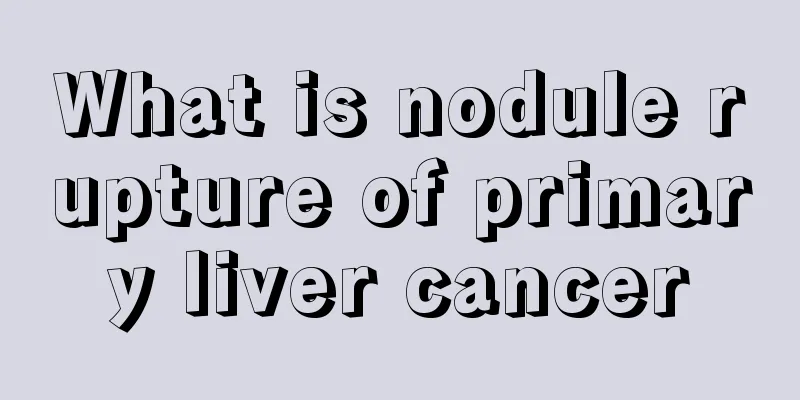Can stage 3 lymphoma be cured?

|
In recent years, we have found that the incidence of lymphoma in China is increasing day by day, and it has now become one of the top ten malignant tumors in China. Many friends are concerned about this question: Can stage 3 lymphoma be cured? The answer is yes. Lymphoma is a curable disease. Fifty to sixty percent of early-stage patients can be cured using immunotherapy, chemotherapy, and targeted therapy. Incidence and causes: Lymphoma is a malignant tumor originating from the lymphatic system, which is mainly divided into two categories: Hodgkin's lymphoma (HL) and non-Hodgkin's lymphoma (NHL). Non-Hodgkin's lymphoma is more common in Chinese patients, accounting for more than 80% of lymphoma. With the rapid development of modern society in recent years, lymphoma has quietly squeezed into the list of China's top ten malignant tumors. Data show that the incidence of lymphoma in China is currently about 691,100, increasing at a rate of 5% per year, with about 50,000 new patients each year. Among them, the incidence of non-Hodgkin's lymphoma has rapidly increased from 2.1 million in the last century to 7.1 million. The cause of lymphoma has not yet been fully clarified, and may be related to some viruses such as EB virus infection, aggravated pollution of the living environment, excessive contact with organic solvents and dyes, and long-term exposure to electronic radiation. Clinical manifestations: Symptoms of non-Hodgkin's lymphoma include swollen lymph nodes (in the neck, armpits or groin), cough, shortness of breath, unexplained weight loss, low fever, excessive sweating (especially at night), etc. However, these symptoms are sometimes not very obvious and are often easily ignored by patients. The author believes that if the symptoms can be detected early and timely treatment is sought, the cure rate will be greatly improved. Some early signs are particularly noteworthy: 1. Progressive lymphadenopathy without clear cause, especially when the location, hardness, and mobility are consistent with the characteristics of malignant lymphoma. 2. "Lymph node tuberculosis" is not responding to regular anti-tuberculosis treatment, and "chronic lymphadenitis" is not responding to general anti-inflammatory treatment. 3. Lymphadenopathy and fever sometimes improve after treatment, but they often recur and the overall trend is progressive. 4. Unexplained long-term low-grade fever or periodic fever, especially accompanied by itchy skin, sweating, weight loss, and superficial lymphadenopathy. The author once again reminds all friends that if these abnormal conditions occur in the body, do not act on your own and go to a regular hospital for examination in time. Lymphoma is one of the most treatable malignant tumors. Many people's misunderstanding of cancer leads them to equate cancer with a terminal illness, and lymphoma is no exception. In fact, lymphoma is not a terminal illness, and advances in medical research have made lymphoma no longer a terminal illness. Generally speaking, the concept of "cure" of a tumor is related to the "5-year disease-free survival rate." Long-term observations have found that if a cancer patient has successfully passed the fifth year of treatment, the chance of tumor recurrence is less than 10%, and the patient can be considered cured. "Although there is still a large gap in the treatment effects of different subtypes of lymphoma, the overall efficacy has been greatly improved, and it has become one of the best-treated malignant tumors among the few curable cancers." The main treatments for lymphoma include immunotherapy, chemotherapy, radiotherapy, molecular targeted therapy, etc. At present, chemotherapy is still the first choice for most lymphoma patients. If 3 to 5 chemotherapy drugs are used at the same time, the 5-year survival rate of patients with Hodgkin's lymphoma can be increased to 70% to 80%; the 5-year survival rate of patients with non-Hodgkin's lymphoma can be increased to 40% to 50%. Radiotherapy is mainly used to eliminate huge tumors in the body and residual tumors after chemotherapy. |
<<: Can lymphoma in the middle and late stages be cured?
>>: Can lymphoma be cured in the mid-stage?
Recommend
Patients with cardia cancer must pay attention to their main symptoms
As a common tumor disease, cardia cancer can caus...
Which groups of people are most likely to have cervical cancer? What are the treatments for cervical cancer?
According to official statistics from China, cerv...
Does sweating on palms mean kidney deficiency?
In daily life, sweating palms is a common problem...
How to determine whether yeast is ineffective
If yeast loses its activity, it is useless. Howev...
What kind of plants are good to put on the refrigerator
Because the space in today's homes is relativ...
How to remove scale from the bottom of the pot
Scale is a problem that troubles many people. Aft...
What medicine to take for endometrial cancer
In clinical medicine, endometrial cancer generall...
How to prevent colon cancer after gallbladder removal
A healthy body and a perfect and harmonious famil...
How long is the life expectancy after endometrial cancer surgery? The survival rate after surgery is very high
The length of life after surgery for endometrial ...
What are the symptoms of advanced peripheral lung cancer? Four symptoms of advanced peripheral lung cancer that you should know
Early diagnosis of peripheral lung cancer is very...
What are the treatment principles for osteosarcoma
The treatment of osteosarcoma is mainly based on ...
Gallbladder cancer symptoms will directly affect the patient's digestive tract!
Patients with gallbladder cancer mainly experienc...
Is burning plastic toxic?
I believe that for many friends who work in OEM f...
Corneal detachment surgery
Corneal detachment is mostly caused by inflammati...
Can pregnant women take Xiao Chaihu granules?
Cold, fever and cough are some common minor illne...









